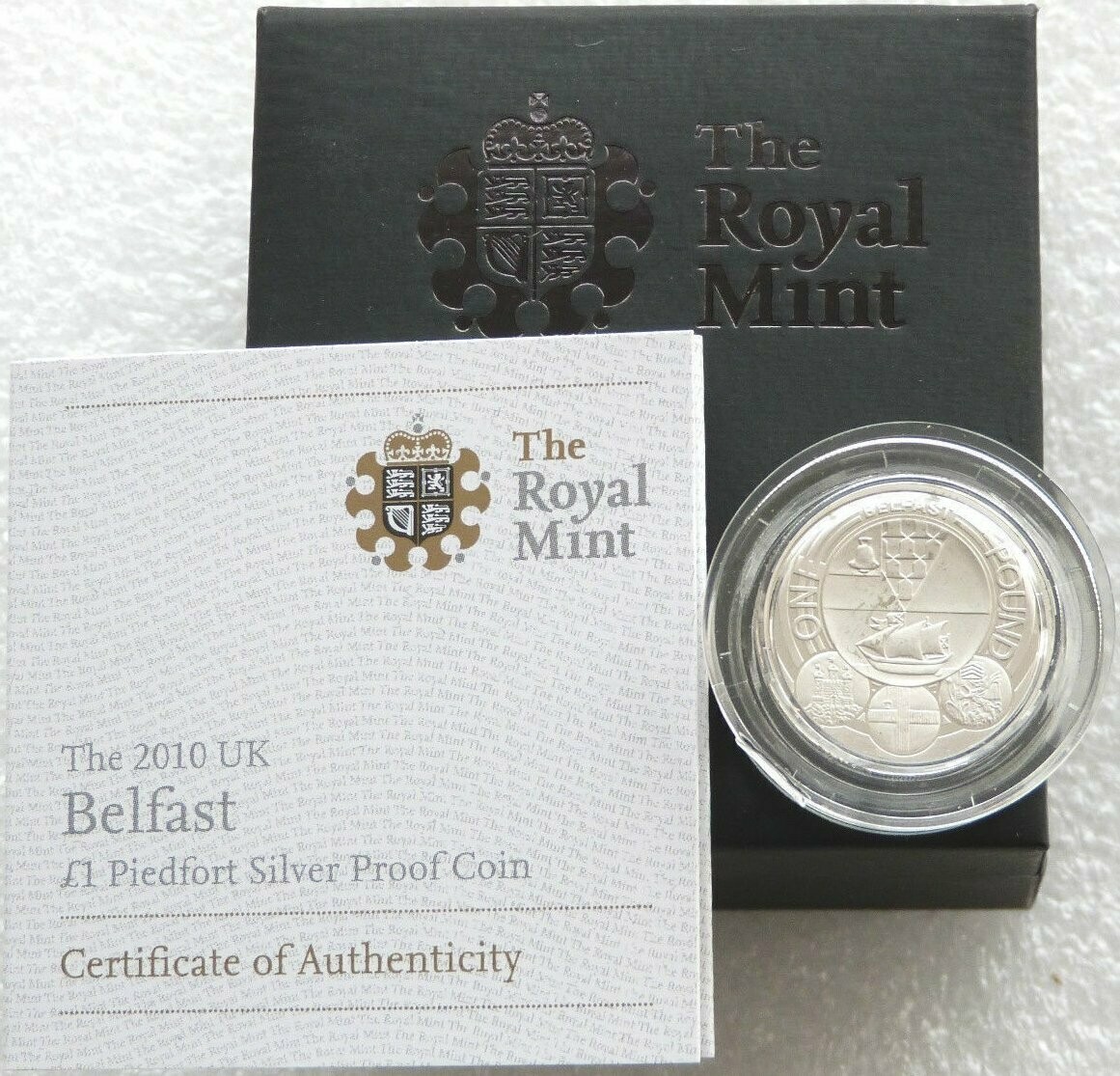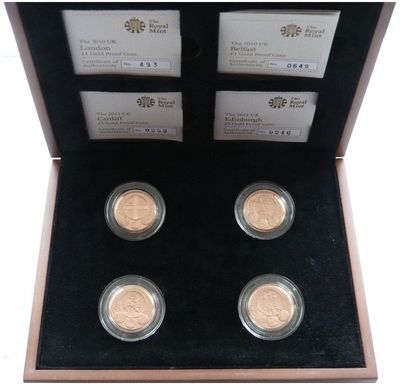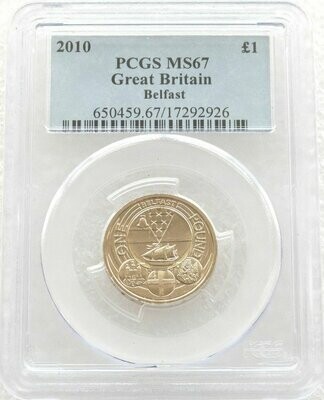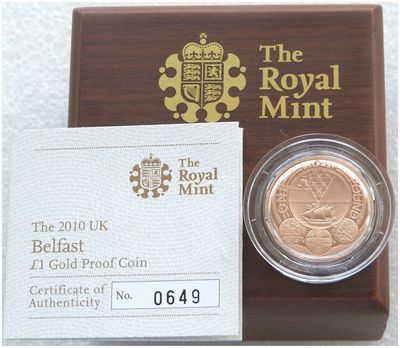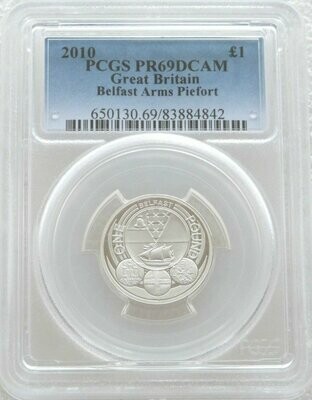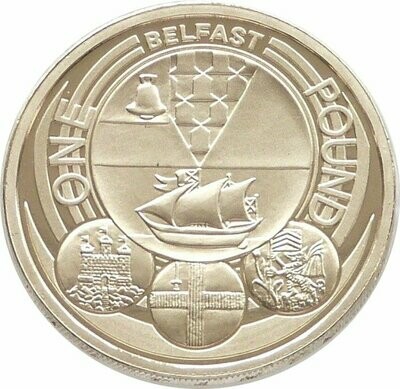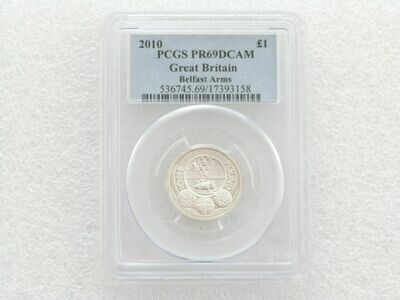2010 Capital Cities of the UK Belfast Piedfort £1 Silver Proof Coin Box Coa
In 2010 to celebrate the Capital Cities of the United Kingdom, the Royal Mint released a very special Limited Issue Belfast Piedfort £1 One Pound Silver Proof Coin struck in solid .925 Sterling Silver.
The reverse of the Belfast Coin shows the coat of arms of Belfast which was used as early as 1643, but it was not until 1890 that the arms were granted officially. The shield, as seen in this reverse design, is 'blazoned' (described technically) as follows:
Per fess argent and azure in chief a pile vair and on a canton gules a bell argent in base on waves of the sea proper a ship sails set argent.
This means that in the upper part there is a silver bell on a small red cornerpiece or 'canton', and a larger triangular segment formed of interlocking blue and white pieces in a specifically heraldic pattern known as 'vair'. In the lower part there is a white or silver ship on waves of the sea.
Belfast was always famous as a port and for shipbuilding. So it is scarcely surprising that a sea-going vessel should dominate the shield.
The bell in the upper part is a simple reference to the city's name and appeared on tokens issued by Belfast tradesmen in the seventeenth century.
The obverse design is the stunning portrait of Her Majesty Queen Elizabeth II by Ian Rank Broadley.
These legal tender coins have been struck to proof quality using specially prepared dies and highly polished blanks.
Piedforts are coins which have been specially struck on thicker than normal blanks.
As their name suggests they are closely associated with France, where from the twelfth century they were apparently issued by the Kings as presentation pieces.
In Britain the practice of striking piedforts is later and less frequent, but medieval and Tudor examples are known.
- Limited Mintage 3,503 Worldwide
- Piedfort Double the Thickness and Weight of its Standard Counterpart
- Finished to Royal Mint's Proof Quality in Solid .925 Sterling Silver
- Royal Mint Boxed with Certificate of Authenticity
